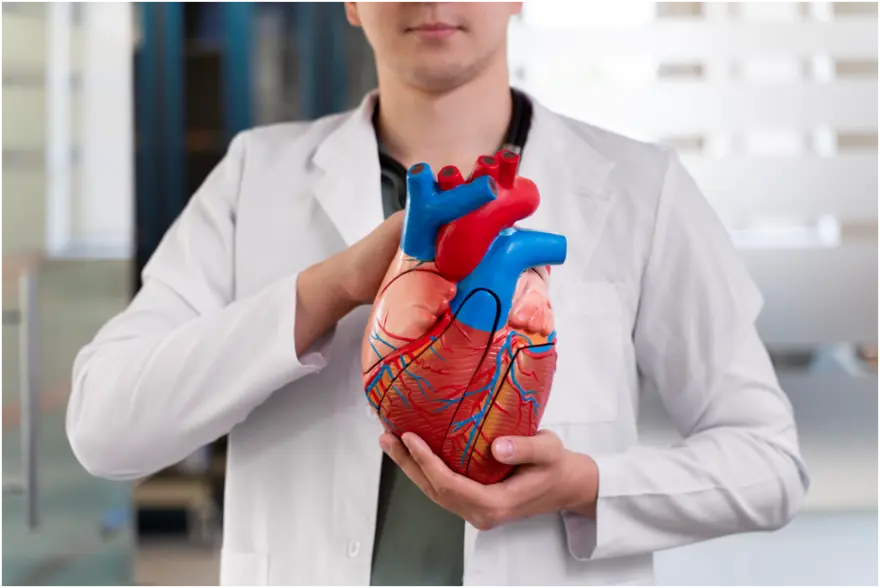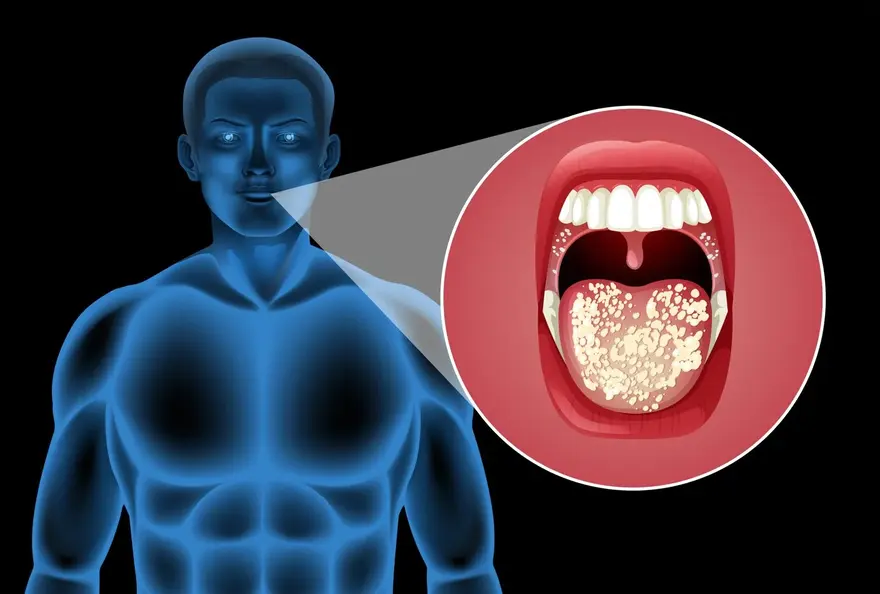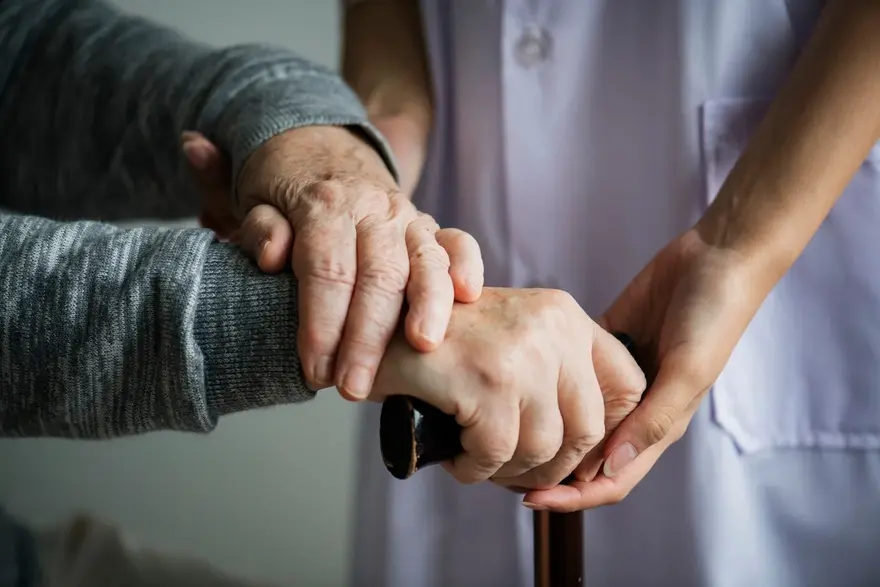Preventive Healthcare
Heart Blockage: Symptoms, Types & Treatment
4669 Views
0

What is heart block?
Heart block happens when there is a problem in the heart’s electrical system. The electrical system controls your heartbeat and its rhythm. It is also known as atrioventricular block or conduction disorder.
What happens if I have a heart block?
The electrical signals pass from the upper to lower chambers of your heart. The AV nodules are responsible for electrical activity between the upper chamber and the lower chambers of your heart. Moreover, the AV nodes are a cluster of cells. However, in the case of a heart block, the signals do not pass from the AV nodules to both chambers.
It is when your heart stops functioning correctly. Your heartbeat becomes slow or skips a beat. At this time, your heart cannot pump blood properly and cannot function normally.
What are the types of heart block?
Heart block can be of three types: first, second, and third degree. It depends on the extent of electrical signal impairment. The various types of heart blocks are as follows:
- First-degree heart blockage: In this case, the electrical signals are reaching the ventricles. However, the movement is much slower than the average rate and there is a delay in impulses. It is one of the mild types of heart blocks.
- Second-degree heart block: The second degree is categorised into Type I and Type II conditions. The type I blockage is less harmful than the type II second-degree blockage. In this stage, the electrical impulses slow down eventually until the heart skips beat. In the Type II blockage, a few electrical impulses do not reach the ventricles frequently. Eventually, your heartbeat becomes slower and irregular.
- Third-degree heart blockage: It is the last stage in which the complete flow of electrical signals is blocked from the atria to the ventricles. In this case, the ventricle starts beating as a pacemaker. However, the heartbeat becomes irregular and unreliable. Third-degree heart blockage ultimately affects the pumping and circulation of blood from the heart to your body. It is a phase where there is a complete heart block.
Is heart block serious or dangerous?
The intensity of seriousness or danger depends on the type of heart block, location, symptoms, heart blockage causes and how severe the blockage is in a patient. If heart block symptoms aren’t treated at the right time, it can lead to sudden cardiac arrest. It means your heart can suddenly stop working.
Who is at risk of having heart block?
You are at a high risk of suffering from a heart block if:
- Your parents have an autoimmune disease.
- You’re more than 40 years old and have symptoms of heart disease.
- You have other heart diseases, such as heart valve disease.
- There are many defects in your heart from birth.
- You are suffering from a disease that can affect your heart, such as sarcoidosis
- There is an overactive vagus nerve condition. In this condition, your heartbeat slows down drastically.
- You are prescribed medications that can slow down your heart’s electrical signals. These medications can be prescribed to treat high blood pressure. A few other medications are heart medicines, calcium channel blockers, antiarrhythmics, sedatives, antidepressants, lithium, or diuretics.
Always talk to your healthcare provider to review your medications.
What causes heart block?
Heart blockage causes also include other heart muscle diseases. These diseases are heart valve diseases, cardiomyopathy, or problems in the heart structure. A significant heart blockage cause is damage done to your heart in an open-heart surgery. A few other causes can be medicine side effects or consumption of toxins. These heart blockage causes can be seen majorly in older age groups people.
Another significant cause of heart blockage is genetics. These are a few heart blockage causes in humans.
What are the symptoms of heart block?
As you know, heart blockage causes, let's see what are the symptoms of it. A few heart blockage symptoms are as follows:
- First-degree heart block: There may not be any symptoms. You may see a symptom during a routine Heart block ECG. Your heart rate and rhythm might appear normal in most cases.
- Second and third-degree heart blockage symptoms: Common symptoms of a second-degree block are:
- Sudden faint or dizzy feeling
- Tired feeling
- Chest pain
- Shortness of breath
- Rapid breathing
- Heart palpitations
- Feeling nauseous
However, the heart blockage symptoms of third-degree are intense and need immediate medical help.
How is heart block diagnosed?
While diagnosing any heart block, your doctor will ask about your medical and family health history. He might ask you questions regarding the entire health, diet, activity level, and symptoms of any heart blockage. The cardiologist or doctor will also ask for your previous medications, both prescribed and over-the-counter. Furthermore, they might need details regarding your smoking or drug history.
The next step is a physical examination. Your cardiologist will listen to your heartbeat and heart rate. The other symptoms of heart failure, such as swollen feet, ankles, and legs, will be checked. Furthermore, the cardiologist might ask you to visit an electrophysiologist to check the electrical signals of your heart.
A few tests the doctor might prescribe you are:
- ECG: An ECG reads your heart’s electrical impulses, rate of heartbeat, and rhythm timing. The ECG test helps the doctor know how severe the heart block is. You might have to wear an ambulatory monitor device such as an event recorder. The doctor might ask you to wear it for 24 to 48 hours. It is done to collect more accurate results about your heart’s electrical activity.
- Implantable loop recorder: It is a device inserted within the skin of the chest. The device can now monitor heart activity for five years. It takes a few minutes to implant such a device as an outpatient and is beneficial for people with continuous episodes. These episodes are usually unclear of their origin.
- Electrophysiology study: In this study, a long tube is inserted through your blood vessels. The tube is called a catheter. It is inserted towards the heart to record, measure, and examine the electrical activity of the heart. Your cardiologist will give you a detailed explanation of this study if there is a need.
What are the complications of heart block?
The various complications of heart block are:
- Heart failure
- Heart attack
- Cardiac arrest
- Irregular heartbeat
The symptoms of heart block in females or males are the same as those of second or third-degree heart block.
How is heart block treated?
The heart blockage treatment depends on its type, location, and level of seriousness. The cardiologist examines the level at which the heart’s functioning is affected. After checking the symptoms, the doctors can manage your condition.
Heart blockage treatment varies depending on every person’s condition. With every degree of blockage, the heart blockage treatment varies. For instance, in:
- First-degree block: You might not need any treatment as there are no severe symptoms. But consult the doctor and do as prescribed by them.
- Second-degree block: If there are minor or severe symptoms, you might need a heart pacemaker for continuous heartbeat. A pacemaker is a device that helps send electrical signals to the heart
- Third-degree block: It is an emergency. The patient is in dire need of a pacemaker in such a situation.
For the heart blockage treatment, your cardiologist will have a brief talk with you. Everything from the type of blockage, what to expect, if you need a pacemaker, to what will happen after getting a pacemaker is explained by the cardiologist.
Can heart block be prevented?
Managing the risk factors can prevent heart block. You must maintain a healthy lifestyle for overall good heart health. Maintain a balanced diet and quit smoking. Know the risk factors of your medications and consult your healthcare provider in case of medicine-induced heart block. If you have already undergone a heart blockage treatment, you can prevent its further symptoms with below-mentioned tips:
- Adapt a healthy lifestyle: A healthy lifestyle means eating a healthy diet, exercising 30 minutes per day, and having a good quality sleep. Moreover, it also includes reducing stress levels, consuming no alcohol, and avoiding smoking.
- Have a conversation with your healthcare provider: Ask your doctor or cardiologist to review your medications. It will help you determine the causes behind the fluctuation in potassium and magnesium levels in your body.
How does heart block affect my life?
In case of first-degree heart block, consult with your cardiologist and ask if you need any lifestyle changes or medications. It is the best way of heart blockage treatment in the initial stages.
If you’re suffering from second or third-degree heart blockage, your healthcare provider might ask you to follow a few restrictions. These restrictions can be limited exercising and doing only light exercises. However, if you have a pacemaker, your general exercising routine isn’t restricted due to it.
Moreover, the cardiologist may suggest you check your pacemaker frequently to avoid any severe problems and heart blockage treatment. It can be done remotely or in the cardiologist’s office. During remote monitoring, a wireless communication system such as Wi-Fi or Bluetooth is used. It is the best way to monitor your heart regularly with the doctor. Moreover, it would be best to visit your doctor’s office once a year for proper evaluation of the pacemaker.
It is non-negotiable to follow the doctor’s instructions and go for regular pacemaker monitoring. The entire process will help in ensuring that your pacemaker is working efficiently in regulating the heartbeat.
Are there special instructions or information I need to share with others if I have a pacemaker?
If you have a pacemaker, then:
- Avoid coming in close contact with high magnetic equipment or a device that has an electrical field. Hence, you should avoid your cell phones as well.
- While going through security checkpoints at courts, airports, etc. you must use the backscatter screener. Moreover, don’t let the security check use hand wands to check you.
- Walking through the scanning stations will not affect your pacemaker. It will send an indication that you have a metal installed within you. Go ahead and inform the security check that you have a pacemaker in your heart. Also, get a card from your cardiologist that shows the details of the pacemaker.
- Inform all your doctors, healthcare providers, and dentists that you have a pacemaker. Moreover, try to make MRI an exception, as it can interfere with the proper functioning of your pacemaker.
When should I call my doctor?
You should reach out to your doctor when you face any of these symptoms:
- Sudden faint or dizzy feeling
- Tired feeling
- Chest pain
- Shortness of breath
- Rapid breathing
Patients can live a healthy life even with heart block. If you are diagnosed with a heat block, you must work with your cardiologist to get the right treatment and stay healthy.
If you are planning to take a test contact Metropolis Lab. A renowned diagnostic centre in India, Metropolis conducts all kind of tests and also provide the test from home facility. You can receive your reports online.























 WhatsApp
WhatsApp